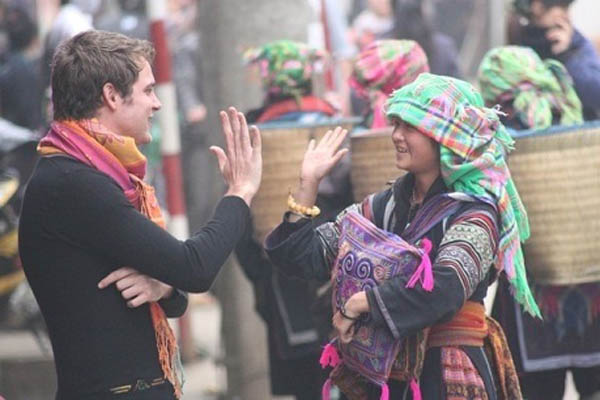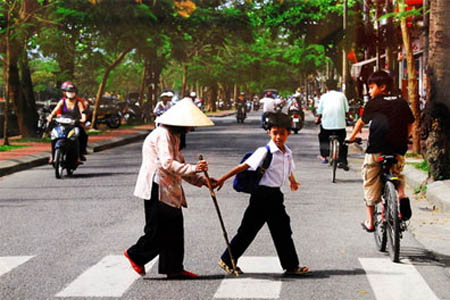I am thankful to Yoshiko Higuchi for sending me the manuscript of her thesis "Collectivism in Vietnam and Japan", a study which I have read with a great deal of interest. The author treats the problem of "face" among the two peoples in an engaging way, basing her research on the works of many anthropologists, especially Edward Hall.
Y Higuchi classes Vietnamese and Japanese cultures, together with other Oriental cultures in the category of "high-contest communication", i.e. collectivist cultures, as opposed to "low-context communication", i.e. individualistic cultures, which include those of the United States and Europe Many Japanese share her opinion that culturally the Japanese have more points in common with the Vietnamese than with other peoples of East Asia. This does not mean that the collectivism of the Japanese is exactly the same as that of the Vietnamese. The concept of "face", linked to those of honor, shame, obligation, impregnates all collectivist cultures but it expresses itself in different ways in Vietnam and Japan. Activities for "saving face" (face work) are generally less verbal than non- verbal.
The leading principle of Confucianism is humanism, understood as a warm human feeling between people. It lays the emphasis on reciprocity. The author notes that Confucianism exercises greater influence on Vietnam and Korea than on Japan.

According to surveys and observations by Higuchi, the Vietnamese offer more excuses than the Japanese. They often "tell lies" so that their guests won’t lose face, which often leads to inter-cultural confusions with regard to the ideas of "courtesy" and "moral integrity". The silence of Vietnamese assumes several meanings, in particular of respect.
Like the Japanese man a Vietnamese man identifies himself with different social groups. But the priority of such groups is not the same:
Vietnamese: 1. Family 2. Friends 3. Work
Japanese: 1. Friends 2. Family 3. Work
Thus for the Vietnamese the family holds the most important place in the scale of social relations. Relationships of the family type are projected on those between friends and fellow-workers. Higuchi thinks that "very probably the family will remain the most important value for the Vietnamese for generations to come".
Although many points raised by the author are subject to discussion, her work shows great perspicacity and a great deal of patience. Let us give her credit for this pioneering work.



